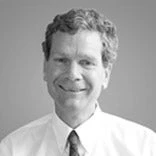Editor's Note:
Welcome to the “10 Candid Career Questions” series, introducing you to the infrastructure and PPP professionals who do the deals, analyze the data, and strategize on the next big thing. Each of them followed a different path into infra and/or PPP practice, and this series offers an inside look at their backgrounds, motivations, and choices. Each blogger receives the same 15 questions and answers 10 or more that tell their career story candidly and without jargon. We believe you’ll be as surprised and inspired as we were.
1. What was your first job?
I took a year off between high school and college and had several jobs: working on a cruise ship, teaching English at an Austrian ski school and working in a bank. But my first job taught me the most. I worked as a street sweeper (i.e. picking up trash) in my hometown over the winter months. I learned that most passers-by simply don’t “see” workers like this. This experience taught me the value of kindness manifested by a hot cup of tea on a freezing morning from a homeowner, good management (the foreman was clear and fair) and the importance of education – which provides you choices beyond cleaning streets.
2. What was your best job?
Working as the UK Government’s economist on the South Atlantic island of St Helena. The island is a truly special place – arguably the most remote place in the world, as planes couldn’t reach it (they’ve just built an airport, but so far flights haven’t begun because it’s too windy to land on the short runway!) I was surprised to learn that the government officials and lawmakers took notice of what a 27-year-old economist was saying! During my two and a half years there, a PPP was concluded that brought satellite telecoms to the island for the first time, and we introduced water metering, which meant that water consumption growth leveled off for the first time. Another reason that made it a special time in life is that my wife and I married while we were there, and we made some wonderful friends.
3. What do your family members think you do all day at work?
My kids think that I’m an incompetent social media specialist interested in PPPs because I ask them questions about how to spread the word virtually every week.
4. What do you really do all day at work?
First I wait (and often wait and wait) for the Metro. A reminder of the need for good infrastructure. At work I meet, listen, talk, email. Listening is probably the most important; I should do more.
5. What do you wish you did all day at work?
I like my work as is. Nevertheless, it would be good to see more clients.
6. What is your go-to industry website?
In the PPP world, I use the PPI Database, the PPPIRC and the PPP Lab. And, I get a daily email from IJ Global and often click through to their news.
7. What did the book that made the biggest impact on you professionally teach you?
Talent is Over-Rated by Geoff Colvin, which taught me that excellence is possible with sustained hard work and frequent feedback (so-called deliberate practice). Now, it’s just a matter of actually doing it…
8. What are you shocked to hear yourself say when you give advice to young professionals?
“When I was your age I did x or y” because then I feel old and somewhat hypocritical because at that age I essentially lived from day to day and things just worked out. I was lucky. I believe in serendipity.
9. What is the most rewarding thing you have experienced in the course of PPP practice?
Seeing young professionals grow as they go through their first experiences, often helping governments in challenging environments to make good things happen.
10. In what ways do you think the PPP area you work in will look different in 10 years?
I expect infrastructure/PPP planning to become more standardized, with protocols for proper preparation. I hope that within seven years 10,000 people will have taken the PPP certification exam. And I expect resilience/sustainability will be built into the design of more PPPs. And, for there to be much more disclosure around PPP contracts and performance. And that all of this leads to much better infrastructure services for a lot more people.



Join the Conversation